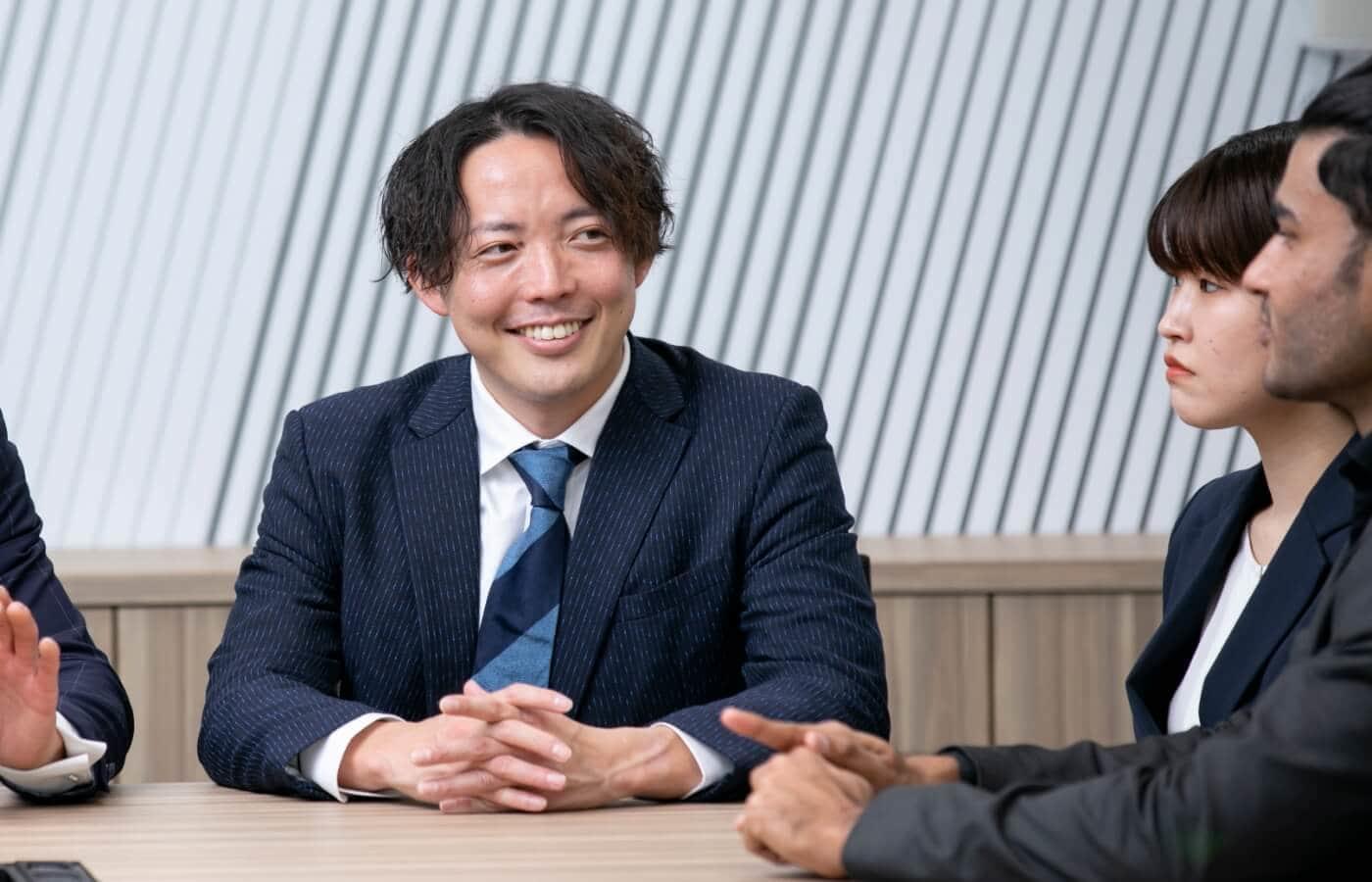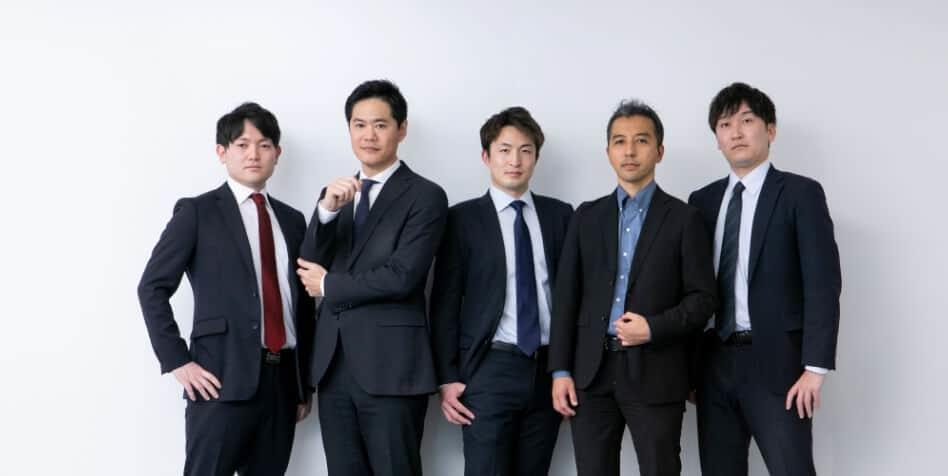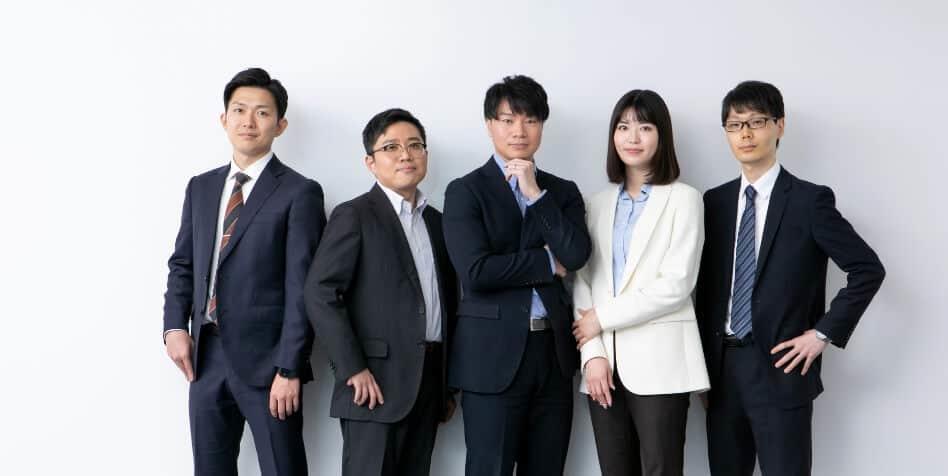
Combining Technology and Intelligence,
Taking on the Challenge of Solving Social Problems

-
Cannes Samin Sundararaja Kapilesh
Joined as new graduates in 2022
-
Sakura Hasegawa
Join mid-career in 2022
-
Shunsuke Kobayashi
Joined mid-career in 2019
-
Kento Motomura
Joined new graduates in 2013
I want to solve the world's food problems. There is a team that strives every day with such passion. Looking around the world, the combination of pandemics, economic shocks, conflicts, climate change, etc. is causing an unprecedented food crisis. By utilizing Macnica 's technology, it may be possible to improve this critical situation even a little. Macnica has launched a new service in its food agritech business with the aim of innovating agriculture and solving social issues related to food in Japan and around the world.
 A Fateful Encounter That Sympathizes with Each Other's Feelings
A Fateful Encounter That Sympathizes with Each Other's Feelings

Macnica thought. "In order to solve the world's food problems, we need to popularize plant factories that enable efficient food production." And, ``In order to realize healthy lives for people, the food produced in plant factories needs to be safe and delicious.'' Therefore, Macnica turned his attention to the actual state of Japanese agriculture. Japan is one of the few countries with advanced technology in the agricultural field. However, due to the emphasis on high quality, it has become clear that efficient production methods have not been established. Macnica thought there was room for innovation here. "If we can use Macnica 's technology to efficiently and sustainably mass-produce high-quality, delicious food made from the knowledge and know-how of Japanese farmers in plant factories, we could change the world." Macnica, who had such an idea, one day came across a company called NEXTAGE. NEXTAGE is focusing on the agritech business, and in response to the situation where it is becoming difficult to produce wasabi due to the aging of agricultural workers and environmental issues, we are producing wasabi with the desire to "preserve Japan's food culture." He was trying to innovate his method. These two companies, who were meant to meet, sympathized with each other's feelings and decided to work together on a project. Wasabi is particularly difficult to control the cultivation conditions of any plant, such as water temperature, air temperature, and sunlight hours, making it difficult to consistently produce high-quality products. If solutions and business models are built to realize mass production of wasabi, it may become possible to mass produce not only wasabi but a variety of other foods. Thus began Macnica 's challenge.
 Thoroughly Explore the Value That We Can Provide
Thoroughly Explore the Value That We Can Provide

Although the project was started with big goals, it hit a dead end soon after it started. In order for anyone to be able to easily grow wasabi anywhere and to deliver delicious wasabi to all over the world, it is necessary to build a new system for this purpose. However, at the beginning of the project, Macnica looked to NEXTAGE for an answer to the question, ``What kind of system should we build?'' and discussions regarding the construction of the system did not move forward. “NEXTAGE is an expert in wasabi factories, but not a technology expert.We realized that in order to implement technology, we needed to connect industry-specific knowledge with cutting-edge technology. I didn't realize it until halfway through,'' Kobayashi says. Having reaffirmed their mission, Macnica set out to clarify ``what value can we provide in this project'' and ``what kind of system should we create to achieve our goals?'' All information was collected. Even if Macnica is an expert in technology, it is meaningless if the technology does not achieve its purpose. Macnica has absorbed a wide range of information about wasabi by touring production factories, tasting various types of wasabi, and interviewing universities and experts, and has thoroughly evaluated the value that we can provide through this project. I groped.
 Cutting-Edge Systems with Remarkable Speed
Cutting-Edge Systems with Remarkable Speed

Through various activities, Macnica has demonstrated that in order to achieve mass production of wasabi, it is important to quantify data such as the size and color of wasabi, streamline cultivation management, and reduce the difficulty of cultivation. I thought. But here, too, I hit a wall. Appropriate sensors for acquiring various data on wasabi did not yet exist in the world. Initially, it seemed difficult to overcome this barrier, but after thorough discussions and pooling of wisdom among Macnica 's data scientists, they were able to find a solution. ``We had several experiences developing AI that measures multiple objects with different shapes and sizes and distances from the camera. , we thought we might be able to solve this problem,'' says Kapilesh. It is not easy to make AI read information about wasabi from image data captured by a camera. Normally, even if the shape or size of the wasabi that appears in the camera image is slightly different, the AI would not be able to detect the wasabi and would not be able to properly acquire data. However, Macnica 's development experience made this possible. "AI that detects dirt on the floor" can recognize objects with different shapes as one object, and "AI that automatically detects golf balls" that can quantify and detect objects at different distances from the camera. Using this technology, they were able to develop and implement a system to obtain information such as the size and color of wasabi in half a month. Thus, the growth data visualization system jointly developed by NEXTAGE and Macnica will soon be released into the world. If this system is adopted by many farmers, anyone will be able to efficiently create a wasabi cultivation plan (recipe), and stable, high-quality wasabi cultivation will be realized.
 Bringing Ideas to Life with Technology
Bringing Ideas to Life with Technology

Why was it possible to move forward with this difficult project that no one has yet realized? This is because Macnica 's AI-savvy "skills" are combined with NEXTAGE's specialized "knowledge" in wasabi cultivation. NEXTAGE had absolute confidence in their know-how to make delicious wasabi, but they did not have the technology to make it a reality. By combining Macnica 's technology, we created an unprecedented breakthrough and responded to NEXTAGE's wishes. ``There are many companies and people like NEXTAGE who have the passion to ``change society somehow'' and ``improve each person's life for the better'' and have ideas to make that a reality. We believe that our mission is to continue to turn people's ideas into concrete forms and implement them into society,'' says Motomura. This project is a major step towards Macnica 's goals. Macnica will continue to contribute to solving other food problems by leveraging the business model, technology, and know-how created through this project. All in order to solve food problems and help people around the world maintain healthy lifestyles. Macnica 's challenges never end.






